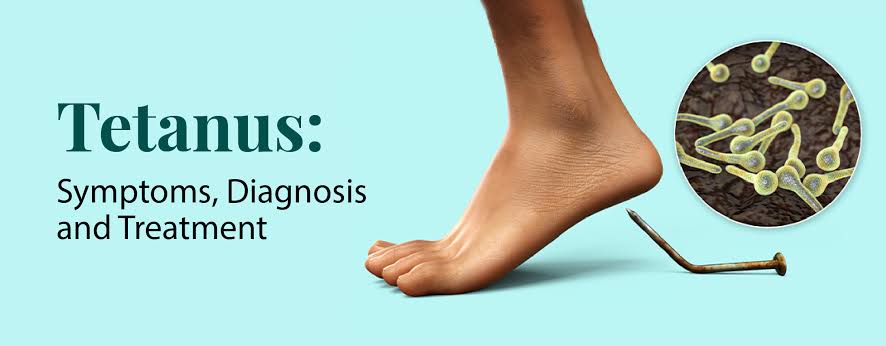From Ancient Cases to Modern Prevention
The First Recorded Case of Tetanus
In the fifth century BCE, the Greek physician Hippocrates, known as the creator of the Hippocratic Oath, documented a mysterious illness while traveling with a seriously ill ship captain. The captain exhibited severe symptoms: locked jaws, muscle spasms in the neck and spine, and extreme rigidity. Despite Hippocrates’ detailed observations, he was unable to cure the condition, and the captain tragically passed away six days later.
Today, this account is recognized as one of the earliest documented cases of tetanus. Unlike Hippocrates, modern medicine is far better equipped to handle this life-threatening infection.
What Is Tetanus?

Tetanus is caused by the bacterium Clostridium tetani, a microorganism that enters the body through cuts or abrasions. Unlike infections like tuberculosis or strep throat, tetanus is not contagious and cannot spread from person to person.
The bacteria thrive in:
• Soil
• Compost
• Dead leaves
They can survive in these environments for years in the form of hardy spores, even under extreme conditions like drought or heat. The association between tetanus and rusty metal stems from the fact that rusted items, often found in undisturbed environments, can cause jagged wounds that allow C. tetani to infect the body.
How Does Tetanus Develop?
Once the bacteria enter the body, they release toxins, including the deadly tetanus toxin. Here’s how it wreaks havoc:
1. Infection and Germination:
The bacteria grow in the oxygen-deprived environment of a wound, releasing toxins.
2. Nerve Cell Disruption:
Tetanus toxin disrupts neurotransmitters in the brain and spinal cord, preventing the body from regulating muscle movements.
3. Symptom Onset:
Symptoms typically appear 7–10 days after injury. Early signs include:
• Pain
• Difficulty swallowing
• Jaw locking (hence the term “lockjaw”)
As the condition worsens, patients may experience:
• Severe muscle stiffness
• An arched back from uncontrollable spasms
• Breathing difficulties, leading to suffocation if untreated.
Without intervention, the survival rate of tetanus is alarmingly low.
Modern Treatments for Tetanus

Fortunately, advancements in medicine have provided effective strategies to combat tetanus:
1. Wound Cleaning:
Doctors thoroughly clean the infected area to remove bacteria.
2. Antibiotics and Antitoxins:
• Antibiotics stop further bacterial growth.
• Antitoxins neutralize toxins that haven’t yet reached the central nervous system.
3. Supportive Care:
Patients may require:
• Muscle relaxants to prevent spasms
• Ventilators to support breathing during recovery
Prevention: The Power of Vaccination
The best way to combat tetanus is through prevention. Vaccination, introduced in the 1920s, has significantly reduced the prevalence of tetanus worldwide.
Tetanus Vaccine Schedule:
• Infants and Children: A series of injections starting at 2 months and ending around 12 years of age.
• Adults: Regular boosters every 10 years.
However, access to vaccines remains a challenge in many low- and middle-income countries. Tragically, over 20,000 infants still die annually from tetanus, particularly in South Asia and sub-Saharan Africa. Unvaccinated mothers are a key risk factor, as newborns can contract tetanus through umbilical stump infections.
Simple Steps to Avoid Tetanus
Whether you’re working outdoors or cleaning an old shed, protect yourself with these precautions:
1. Stay up-to-date on your tetanus vaccinations.
2. Wear protective gloves and footwear in environments with potential hazards like rusty nails or scrap metal.
3. Clean any wounds promptly and thoroughly, even minor ones.
The Takeaway
Tetanus remains a global health concern, but it’s preventable. Thanks to vaccines and modern medicine, the days of helplessly waiting, as Hippocrates once did, are long gone. With proper care and prevention, we can ensure that this ancient threat stays firmly in the past.
For more information, visit resources like:
• World Health Organization (WHO)
• Centers for Disease Control and Prevention (CDC)
• UNICEF
Protect yourself and your loved ones—get vaccinated and stay safe!



